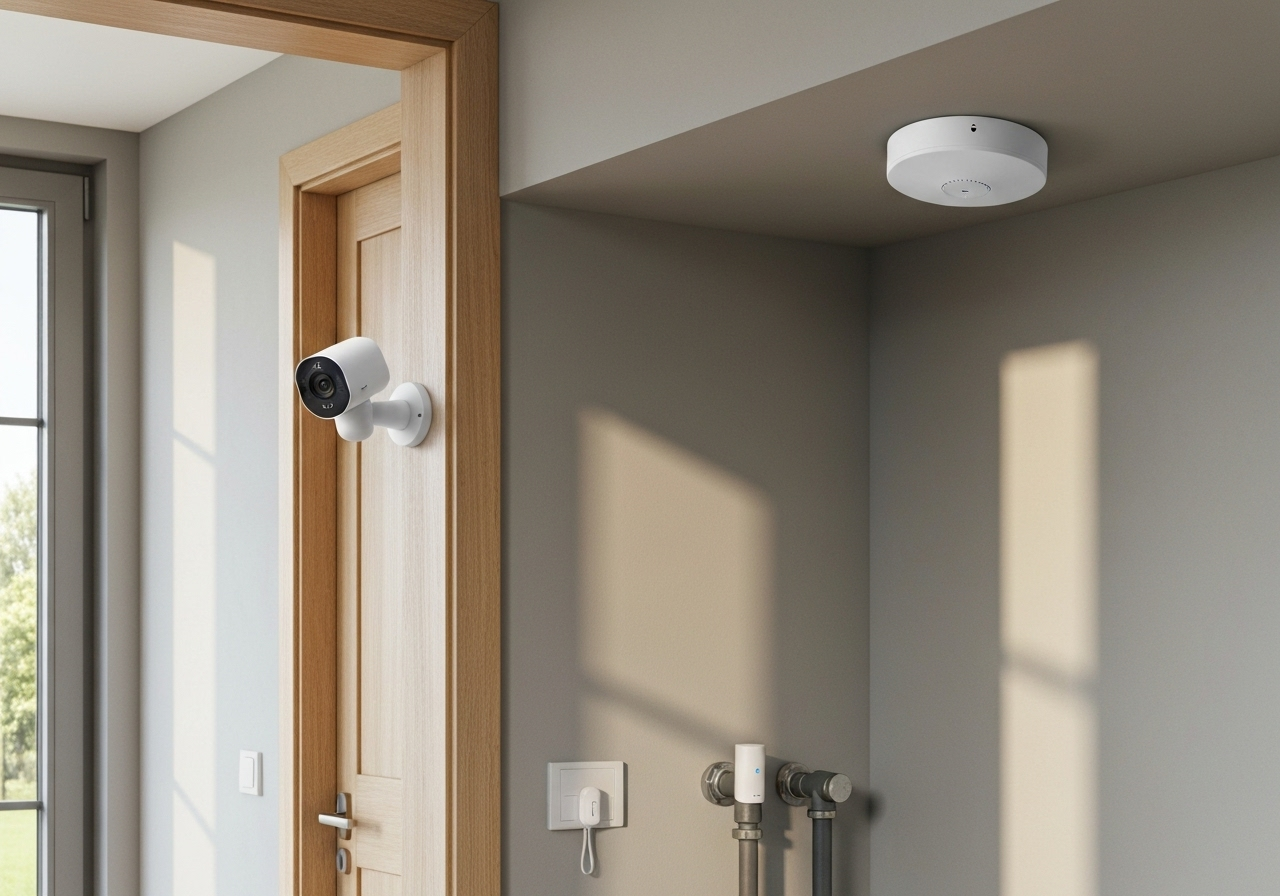Unlocking Savings: How Smart-Home Devices Could Save You Money on Home Insurance
The integration of technology into our homes has brought unprecedented convenience, from adjusting thermostats remotely to monitoring security systems on the go. Beyond comfort, these innovations offer a significant financial benefit: smart-home devices could save you money on home insurance. Insurance providers recognize the value of proactive home protection, and they often reward homeowners who invest in smart technology that mitigates risks and prevents costly damages.
What Are Smart-Home Devices and How Do They Protect Your Home?
Smart-home devices are interconnected appliances and systems within your residence that can be remotely monitored and controlled via the internet, typically through a smartphone or tablet app. They enhance home safety and security by offering real-time data and immediate alerts for potential issues. For instance, a smart water sensor placed near an appliance can detect a leak the moment it begins, sending an alert to your phone and potentially even initiating an automatic water shut-off to prevent extensive damage. Similarly, smart smoke and carbon monoxide detectors not only sound an alarm but also notify your device, allowing for quicker response times, even when you’re away.
These devices contribute to a safer home environment by:
- Providing 24/7 surveillance and alerts for intrusions or unusual activity.
- Detecting environmental hazards like water leaks or fire before they escalate.
- Allowing remote control of various home functions, reducing risks associated with human error (e.g., forgetting to lock a door or turn off an appliance).
The Direct Link: Smart Devices and Home Insurance Discounts
Insurance companies offer discounts for smart home devices primarily because these technologies reduce the likelihood and severity of claims. By enabling early detection and prevention, smart homes minimize the financial risk for insurers. For example, a home equipped with smart water leak detectors is less likely to incur significant water damage, a common and expensive type of claim. This proactive approach benefits both the homeowner, through potential savings on premiums, and the insurer, by reducing payouts.
Many major insurance carriers, including American Family, Amica, and Hippo, provide various forms of smart home discounts. These can range from a percentage off your annual premium to subsidized purchases of the devices themselves. The specific discount amount often depends on the type of device, its monitoring capabilities (self-monitored versus professional 24/7 monitoring), and your location. According to NerdWallet, some homeowners could see discounts up to 20%, though averages tend to fall between 5% and 15% of premiums.
Key Smart-Home Technologies That Reduce Risk (and Premiums)
Not all smart devices are equally impactful when it comes to insurance savings. Devices focused on preventing major perils like fire, theft, and water damage are typically the most valued by insurers. Here are some key smart home technologies that can help you reduce risk and potentially lower your premiums:
| Smart Home Device Type | How It Reduces Risk | Potential Insurance Benefit |
|---|---|---|
| Smart Security Systems (Cameras, Door/Window Sensors, Motion Detectors, Video Doorbells) | Deters burglars, provides real-time alerts for intrusions, captures evidence. | Discounts for burglar alarm systems and monitored security. |
| Smart Smoke & Carbon Monoxide Detectors | Detects fire and dangerous gas levels, sends mobile alerts, can notify emergency services. | Discounts for monitored fire and CO detection systems. |
| Water Leak Detectors & Smart Shut-Off Valves | Detects leaks early, prevents significant water damage by automatically shutting off water supply. | Significant discounts due to reduced water damage claims. |
| Smart Locks | Allows remote locking/unlocking, eliminates lost key risks, enhances entry control. | Discounts for improved home security. |
| Smart Thermostats | Monitors and regulates home temperature, preventing frozen pipes in winter. | Small discounts, often tied to energy efficiency. |
These devices go beyond mere convenience; they are active participants in safeguarding your property, which is precisely why insurance companies view them favorably. Learning more about vital homeowner maintenance tips to prevent costly damage can further enhance your home’s protection profile.
Why Insurance Companies Reward Smart Homes
The rationale behind insurance companies rewarding smart homes is rooted in loss prevention. Insurance is fundamentally about managing risk. When homeowners proactively reduce potential hazards, they decrease the likelihood of filing claims, which translates to fewer payouts for the insurance company. This creates a win-win scenario: homeowners enjoy peace of mind and potential savings, while insurers face fewer and less severe claims.
For example, a smart electrical hazard detector can identify early warning signs of electrical problems that could lead to fires, allowing for intervention before a major incident occurs. Without such a device, a small electrical issue could escalate into a devastating fire, resulting in a large insurance claim. By minimizing such risks, smart home technology helps maintain a more stable claims environment for insurers.
Moreover, some insurers partner directly with smart home device manufacturers to offer discounted products or services. This incentivizes adoption, creating a larger pool of protected homes. While some programs may involve data sharing (typically related to the activation status of the devices, not personal usage data), this information helps insurers verify eligibility for discounts and better understand the impact of smart technology on overall risk.
Choosing the Right Smart-Home Devices for Maximum Savings
Before investing in smart home technology solely for insurance savings, it is advisable to consult with your insurance provider. Policies and eligible devices vary between companies. Some insurers may only recognize specific brands or models, or offer higher discounts for systems that include professional monitoring. For instance, American Family Insurance notes that discounts and eligibility can vary by state and policy terms, and encourages homeowners to check with their agent.
Consider the unique risks of your home. If you have older plumbing, water leak detectors might be a more impactful investment. If you live in an area with higher crime rates, a robust smart security system with cameras and motion detectors might yield greater benefits. Often, bundling several safety-focused smart devices can lead to a more substantial discount than installing a single gadget. Keep all documentation and receipts for your devices, as your insurer may require proof of installation or an inspection to verify eligibility for discounts. Staying proactive and updating your provider about any new smart home installations will ensure you continue to maximize your potential savings on home insurance.
Ready to Save? Get a Personalized Home Insurance Quote from Beach Insurance LLC
Embracing smart home technology is a forward-thinking way to enhance your home’s safety and potentially reduce your homeowners insurance costs. By understanding how these devices work and which ones are most valued by insurers, you can make informed decisions that protect your property and your finances. Explore how essential factors impact your homeowners insurance cost and consider the added benefits of smart home integration. Partner with Beach Insurance LLC to discover how your smart home investments can lead to a more secure home and noticeable savings on your policy.
Ready to take the next step? Visit our Contact Us page to get started.






